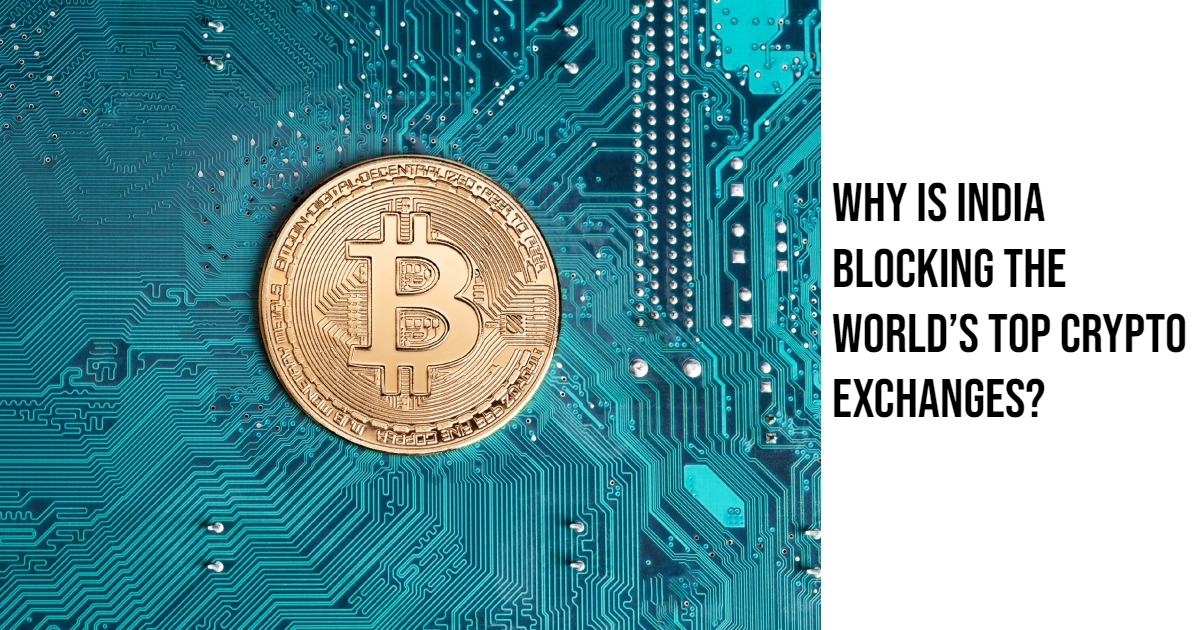The Indian cryptocurrency landscape finds itself enveloped in uncertainty, with the recent decision to block nine major global exchanges, including industry giants like Binance, Kraken, and KuCoin, adding fuel to the existing fire. This unprecedented move has left investors bewildered, prompting a pressing question: Why is India, once viewed as a potential cryptocurrency haven, seemingly slamming the door shut on these influential players in the crypto industry? The quest for clarity in understanding the motivations behind such actions has become paramount, as stakeholders and enthusiasts grapple with the implications on the future of cryptocurrencies within the country.
Unraveling the Reasons: A Tapestry of Concerns
Several factors intertwine to form the backdrop to this decision:
- Anti-Money Laundering (AML) Concerns: The Indian government maintains that these offshore exchanges lack a robust KYC (Know Your Customer) and AML infrastructure, potentially facilitating financial crime and tax evasion. The recent FinCEN Files leak allegedly implicating Binance in money laundering further strengthens this concern.
- Unregulated Landscape: Despite growing interest, cryptocurrency remains largely unregulated in India. This lack of legal clarity creates space for potential financial instability and consumer protection issues, which the government aims to address by excluding unregistered platforms.
- Capital Outflow Fears: The government worries that large-scale crypto investments could lead to capital outflow from India, impacting the Rupee and potentially destabilizing the financial system. Blocking major exchanges restricts this flow and maintains control over foreign currency movement.
- Central Bank Digital Currency (CBDC) Ambitions: India is actively developing its own CBDC, the Digital Rupee. By potentially displacing private cryptocurrencies, the government might see these exchanges as competition and a hurdle to their CBDC adoption goals.
Beyond the Blocks: Implications and Unforeseen Consequences
This decision sends ripples across the Indian crypto ecosystem and beyond:
- Investor Jitters: Indeed, the decision to block major global crypto exchanges in India has heightened investor jitters. The move introduces uncertainty into the market and has the potential to erode investor confidence significantly. This uncertainty may deter both existing and potential investors from participating in the crypto space in India. As a consequence, the broader adoption of cryptocurrencies within the country could be impeded, impacting the growth and development of the digital asset landscape.
- Increased Complexity: The decision to block major global crypto exchanges in India adds a layer of complexity to the crypto landscape. In response to these restrictions, investors might explore alternative, unregulated avenues to continue their crypto activities. This shift to less regulated platforms could expose investors to potential scams, fraudulent activities, and heightened financial risks. The increased complexity of navigating the crypto space under these circumstances could lead to unintended consequences for investors and the overall stability of the market.
- Global Disconnect: The move to block major global crypto exchanges in India has broader implications, potentially isolating the country from the global crypto market. This isolation may have a stifling effect on innovation within the domestic crypto ecosystem and hinder the development of a robust talent pool. Access to a global market allows for the exchange of ideas, technological advancements, and collaboration, all of which contribute to the growth and dynamism of the crypto industry. The restriction on global exchanges could impede India’s ability to leverage international expertise and participate fully in the global crypto dialogue.
- Legal Battles: The recent blocking of major global crypto exchanges in India has raised questions about the legality of such actions. The ambiguity surrounding the legal basis for the block may lead affected exchanges to challenge the decision in court. This could result in protracted legal battles, adding another layer of uncertainty to the regulatory landscape. Legal challenges may seek clarification on the grounds for the block, potentially influencing future regulatory decisions in the rapidly evolving digital asset space. The outcome of these legal battles could shape the trajectory of crypto regulations in India.
Beyond the Binary: A Nuanced Path Forward
Addressing the government’s valid concerns about cryptocurrency without resorting to a blanket ban requires exploring more nuanced and balanced approaches. Consideration of the following alternatives could pave the way for a more informed and strategic regulatory framework:
- Clear Regulation: Develop a comprehensive regulatory framework that addresses AML/KYC requirements, consumer protection, and taxation while fostering responsible innovation within the space.
- Collaboration with Exchanges: Work with global platforms to implement robust compliance measures and ensure transparency in transactions.
- Phased Approach: Instead of an immediate block, consider a phased approach with clear guidelines and timeframes for compliance, allowing responsible exchanges to adapt and operate within the regulations.
- Focus on Education: Increase public awareness about the risks and opportunities associated with cryptocurrency to promote informed investment decisions.
A Crossroads for Crypto in India:
The recent decision by the Indian government to block major global crypto exchanges represents a pivotal moment in the country’s digital asset journey. While acknowledging the legitimate concerns about potential financial risks and regulatory loopholes, a sweeping ban raises questions about stifling innovation and alienating investors. Striking a middle ground through balanced regulation, collaborative efforts, and public education becomes essential for fostering a robust and responsible crypto ecosystem in India.
The unfolding future is likely to be characterized by ongoing debates, legal challenges, and evolving regulatory landscapes. Despite the uncertainty of the immediate outcome, one certainty remains: the Indian crypto narrative is far from its conclusion. The ultimate destination will be shaped by the collective endeavors of policymakers, industry participants, and the informed decisions made by investors navigating this dynamic and complex terrain.

